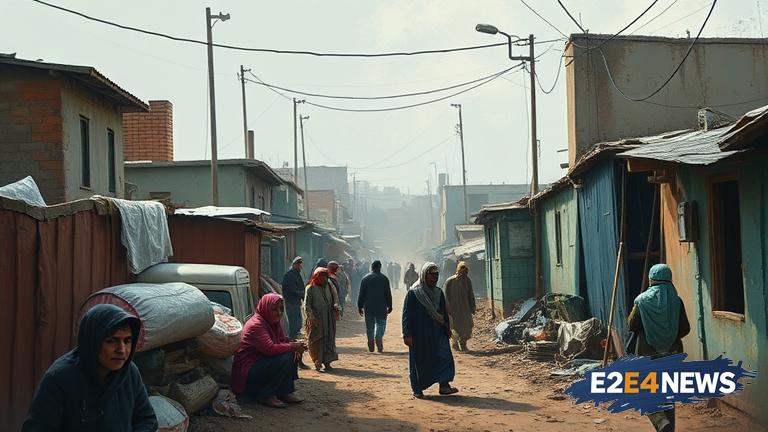The UK government has been criticised for its handling of Afghan refugees, with many being housed in squalid conditions that are ripe for radicalisation. Ministers have been warned that the poor living conditions are creating an environment where refugees are vulnerable to extremist ideologies. The refugees, who were relocated to the UK after the Taliban took over Afghanistan, are being housed in temporary accommodation that is often overcrowded and unsanitary. Many of the refugees are struggling to access basic necessities like food, water, and healthcare, leading to widespread discontent. The situation has been exacerbated by the lack of clear communication from the government, leaving many refugees feeling abandoned and disillusioned. The refugees are also struggling to adapt to their new surroundings, with many feeling isolated and alone. The government has been accused of failing to provide adequate support to the refugees, including language classes, job training, and mental health services. The poor living conditions and lack of support have created a sense of desperation among the refugees, making them more susceptible to radicalisation. The government has been warned that the situation is a ticking time bomb, with the potential for extremist groups to exploit the vulnerabilities of the refugees. The ministers have been urged to take immediate action to address the situation, including providing better housing, increasing support services, and improving communication with the refugees. The government has also been criticised for its slow response to the crisis, with many refugees waiting months for their asylum claims to be processed. The delay has left many refugees in limbo, unsure of their future and struggling to make ends meet. The situation has sparked widespread outrage, with many calling for the government to take responsibility for its handling of the crisis. The government has promised to review its policies and procedures, but many are sceptical about the likelihood of meaningful change. The situation is a stark reminder of the challenges faced by refugees and the need for governments to provide adequate support and protection. The UK government must take immediate action to address the situation and prevent the radicalisation of Afghan refugees. The government must also work to provide better housing, increase support services, and improve communication with the refugees. The situation is a complex one, requiring a comprehensive and multifaceted approach. The government must work with local communities, NGOs, and other stakeholders to provide a coordinated response to the crisis. The situation is a test of the government’s commitment to protecting the rights and dignity of refugees, and its response will have far-reaching consequences for the UK’s reputation as a safe haven for those fleeing persecution and conflict.
